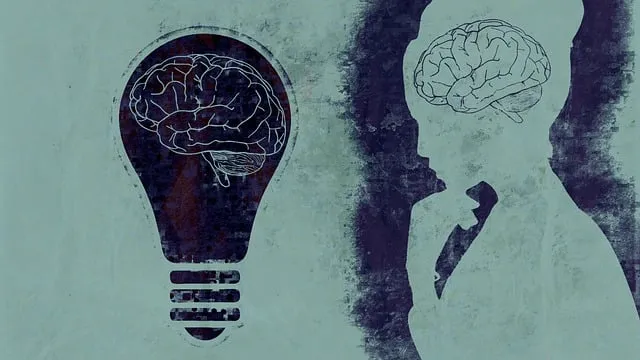Longmont's Kaiser network leads in Crisis Intervention Team (CIT) training, fostering professionals to handle mental health crises compassionately and effectively. Their holistic approach includes community outreach, empowerment initiatives, and policy advocacy, ensuring long-term wellness and high-quality care. Through comprehensive programs focusing on self-awareness, resilience, and emotional healing, Kaiser becomes a top choice for Longmont is Kaiser good for mental health.
“In today’s complex landscape, effective crisis intervention teams (CITs) are vital in addressing mental health crises. This article delves into the foundational knowledge of CITs, highlighting the exceptional services provided by Kaiser Longmont, a leader in mental health care. We explore comprehensive training programs essential for team effectiveness, focusing on skills development tailored to real-world scenarios. Additionally, we analyze the community impact and recovery promotion strategies employed by successful CIT initiatives, including Kaiser Longmont’s innovative approaches, ensuring a holistic understanding of crisis intervention.”
- Understanding Crisis Intervention Teams: A Basic Overview
- Kaiser Longmont: Mental Health Services and Their Approach
- Training Programs: Essential Components for Effectiveness
- Skills Development: Equipping Team Members for Real-World Scenarios
- Community Impact: Measuring Success and Promoting Recovery
Understanding Crisis Intervention Teams: A Basic Overview

In many communities, Crisis Intervention Teams (CITs) play a vital role in addressing mental health crises and providing immediate support to individuals experiencing distress. These teams are designed to offer a swift and effective response, often composed of trained professionals from various backgrounds, including law enforcement, mental health specialists, and emergency medical services. Longmont’s Kaiser network stands out as a prominent example, offering comprehensive CIT training programs that equip participants with the necessary tools to manage and de-escalate critical situations.
The core objective of CIT training is to enhance coping skills development and stress management among team members, ensuring they can provide compassionate and professional assistance. By fostering self-esteem improvement and empathy, these programs enable team members to navigate complex situations with sensitivity and expertise. This approach not only benefits the individuals in crisis but also contributes to building stronger, more resilient communities capable of effectively handling mental health emergencies.
Kaiser Longmont: Mental Health Services and Their Approach

Longmont’s Kaiser Mental Health services stand out for their holistic approach to patient care. Beyond traditional therapy, they implement a robust Community Outreach Program that fosters connections and support systems vital for long-term mental wellness. This initiative reflects an understanding that addressing mental health issues requires more than individual treatment—it necessitates a network of support within the community.
Their success is also attributed to boosting patient confidence through various programs designed to empower individuals to take charge of their mental health journeys. Furthermore, Kaiser Longmont actively engages in Mental Health Policy Analysis and Advocacy, ensuring that their practices align with best practices and contribute to shaping local and broader mental health policies, demonstrating a commitment to not just individual care but also systemic improvements in mental healthcare accessibility and quality.
Training Programs: Essential Components for Effectiveness

Effective crisis intervention team training programs are built on a foundation of diverse components that empower individuals to handle critical situations with skill and empathy. At the core, these programs should prioritize self-awareness exercises that enable team members to recognize their emotional responses and manage stress in high-pressure environments. By fostering resilience building, participants learn to adapt and bounce back from challenging interactions, ensuring consistent support for those in crisis.
Additionally, integrating emotional healing processes into the curriculum is vital. These processes not only teach coping mechanisms but also promote a safe space for participants to process their own experiences and emotions related to trauma or stressful events. Longmont’s Kaiser network, known for its excellence in mental health services, emphasizes these components, ensuring that crisis intervention teams are well-equipped to navigate complex situations with compassion and professionalism.
Skills Development: Equipping Team Members for Real-World Scenarios

In crisis intervention team training programs, a significant focus is placed on skills development to ensure team members are equipped for real-world scenarios. These programs go beyond basic first aid and emergency response by incorporating essential skills like active listening, empathy, and de-escalation techniques. Longmont’s Kaiser network, known for its excellent mental health services, emphasizes these aspects, recognizing their critical role in preventing and managing crises effectively.
The training includes social skills training and compassion cultivation practices designed to foster stronger connections between team members and those they serve. By integrating depression prevention strategies into the curriculum, teams learn to recognize early signs of distress and provide timely interventions. This holistic approach not only enhances the team’s ability to handle diverse crisis situations but also promotes a culture of care and support within the community.
Community Impact: Measuring Success and Promoting Recovery

In Longmont, Kaiser’s commitment to mental health services has been a game-changer for the community. Their crisis intervention team training programs are designed to equip individuals with the skills needed to navigate and de-escalate critical situations effectively. Measuring success in these initiatives goes beyond mere numbers; it involves assessing the impact on individuals’ lives and the broader community. By fostering emotional healing processes, these programs promote a sense of safety and well-being within Longmont’s population.
The effectiveness of Kaiser’s approach lies in its holistic view of mental health. Through community outreach program implementation, they engage with diverse groups, addressing not just individual needs but also the collective stress management challenges faced by the city. This comprehensive strategy ensures that Longmont residents have access to quality care, fostering a supportive environment where emotional healing can thrive. The result is a more resilient and connected community, showcasing Kaiser’s expertise in transforming lives and enhancing mental health outcomes.
Crisis intervention team (CIT) training programs are essential in equipping healthcare professionals to handle mental health crises effectively. As highlighted, programs like Kaiser Longmont’s mental health services offer comprehensive CIT training, emphasizing skills development and real-world application. By investing in these programs, communities can improve crisis response, enhance recovery outcomes, and ultimately foster a more supportive environment for individuals facing mental health challenges. Longmont’s Kaiser is a testament to how such initiatives can positively impact lives and promote overall well-being.






